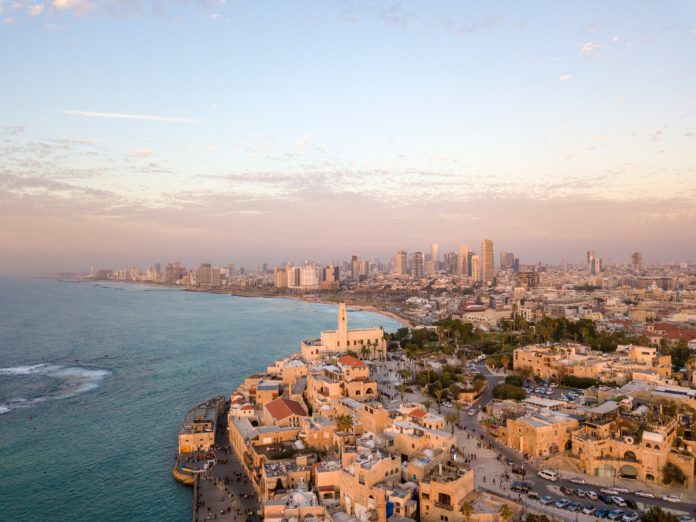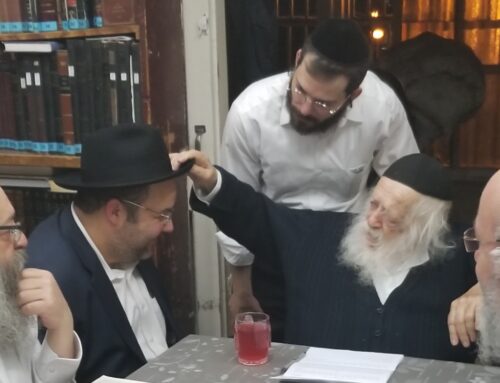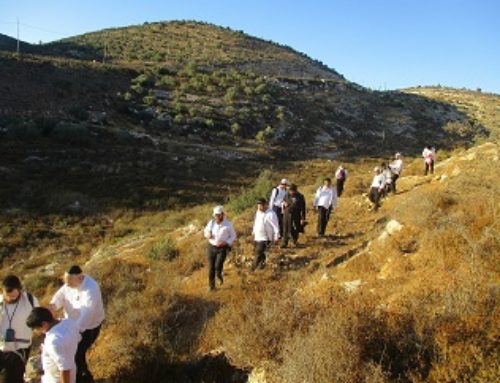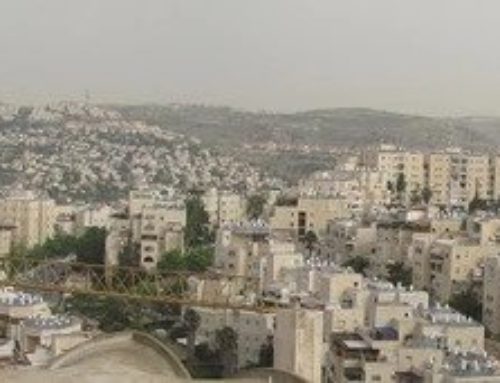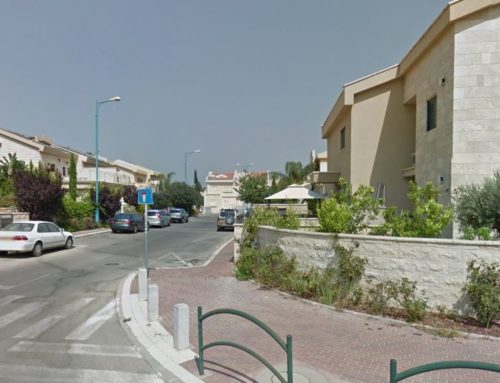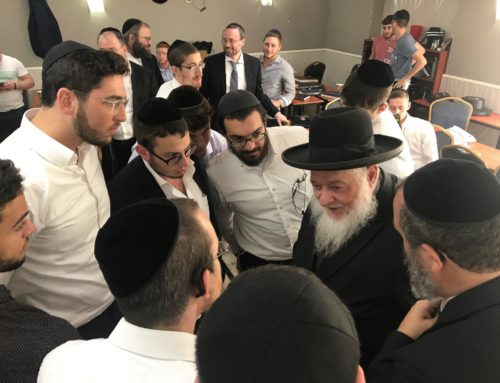Haaretz Hatovah
Real Life Stories and Experiences of Yidden Settling in Eretz Yisroel.
Two Sides Of One Land
Feivel A., Ramat Eshkol, Yerushalayim
I grew up in Los Angeles as an ordinary frum kid, no different than many others on the block.
My parents often spoke lovingly and longingly about Eretz Yisroel. We actually visited the Holy Land a few times when I was a child. We spent a summer in Eretz Yisroel and enjoyed it immensely and a year or two later, we spent yet another summer there as well.
My mother’s parents had relatives in Eretz Yisroel. To their great pride, their son, my uncle, made aliyah a few years after his marriage. My parents spoke openly about themselves also wanting to move to Eretz Yisroel, but unfortunately, it never happened – they are still in L.A.!
I was always intrigued by the many books describing Eretz Yisroel and its mekomos hakedoshim. I perceived a certain ancient charm in the pictures of cobblestone streets and dirt roads. When I arrived here for third year bais medrash, I was very excited, and enchanted, by the ruchnius opportunities that seemed to be growing from the trees – the Kosel, the kevarim, the Gedolim. I just couldn’t get enough!
I joined a fairly small yeshiva which was under the leadership of one of the Gedolim. It had a close-knit following of devoted talmidim, many of them yungeleit only a few years older than me. They warmly welcomed me and the rest of the bochurim into their homes. The warmth, the simcha, and the sense of camaraderie was very special. There was an overall feeling that we were part of something. This was my first inspiration, so to speak, to consider establishing my home in Eretz Yisroel. As my years in the yeshiva went on, this sentiment only grew stronger.
When the time came to pursue a shidduch, I considered doing so in Eretz Yisroel. My parents, though, felt that I should return to the States to find a wife, and only afterwards move back to Eretz Yisroel, as a married couple. It’s not that they wanted me to stay in America; they were actually very happy that I wanted to live in Eretz Yisroel.
I then spent a year learning in Lakewood. Although I did enjoy the learning there, I felt very much out of my element. I truly missed Eretz Yisroel and desperately wanted to come back. I even convinced my parents that it would be worth letting me go back to Eretz Yisroel, even if only for an Elul Zman. It was definitely worth it!
While in shidduchim, I did make mention of my special experiences and feelings for Eretz Yisroel. I certainly expressed a desire to live there, but I did not ask for a commitment to live in Eretz Yisroel as a prerequisite or condition for a shidduch. This was under the guidance of my Rosh Yeshiva, who also advised against making long term plans right away. Unfortunately, the girl who would become my wife was given the impression (by some well-meaning individuals) that this was a condition, and that she was indeed signing her life away to living away from her family forever! This backfired many times, over the years. I guess it wasn’t enough just to listen to my Rosh Yeshiva; I should have made sure that everyone else did as well. Ultimately, we married and moved here, taking each year, and each day, one at a time.
For the first three years here as a married couple, we lived in the Yerushalayim neighborhood of Har Nof. The apartments were quite large and comfortable, but from a social aspect, we felt a void. There weren’t too many young couples our age, with children the same ages as our children. We therefore moved to the Sanhedriya / Ramat Eshkol area, and have been living there ever since. In a certain sense, we are now considered part of the ‘older,’ more permanently settled crowd here.
The demographics here in our neighborhood have changed since we arrived. The language on the street is now basically English, and the shuls and ganim (preschools) are filled with Anglos. Although I do enjoy the comfort of having landsmen next door, I miss the nostalgic Israeli charm and simplicity. To begin with, it was that culture that I had felt drawn to, not the one I had grown up with!
Nowadays, it is much simpler to live in Eretz Yisroel. In neighborhoods like mine, your friends and neighbors are all English speakers. Over the past few years new shuls have opened up, led by American rabbonim, which serve the American tzibbur. You can get all the amenities of America here – three bagel stores, ice coffee, Snapple and Gatorade too! – and there are even chadorim and Bais Yaakovs that cater to the English-speaking tzibbur. “For the Americans, by the Americans!” There are surely blessings in this new age, where people can move here while staying very much in their comfort zone, but I do miss the charm, the chein, and the innocence of the other, “authentically Eretz Yisroel,” side.
Our side, though, is also becoming an authentic part of the mosaic that makes up Eretz Yisroel…
The Difference
On a recent trip to America, my five-year-old daughter made a comment that seemed to capture the purity and innocence of a child’s perspective. She was enjoying bubby’s pool, going on outings, and having a blast being wined and dined, but she still felt she should ask: “Abba, is there also a Kosel in America?” “No,” I told her, “there is not.” “Is America kadosh like Eretz Yisroel?” “No, it’s not.”
Maybe she’s only five, but she chapped the difference! The mekomos hakedoshim, the sanctity of a land seeped in kedusha – that is what makes Eretz Yisroel special!
This article is part of our Haaretz Hatovah series featuring Yidden living in, settling, and building up Eretz Yisroel. For more info please contact [email protected] or visit naavakodesh.org/haaretz-hatovah

